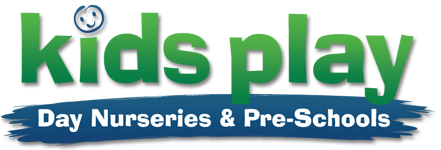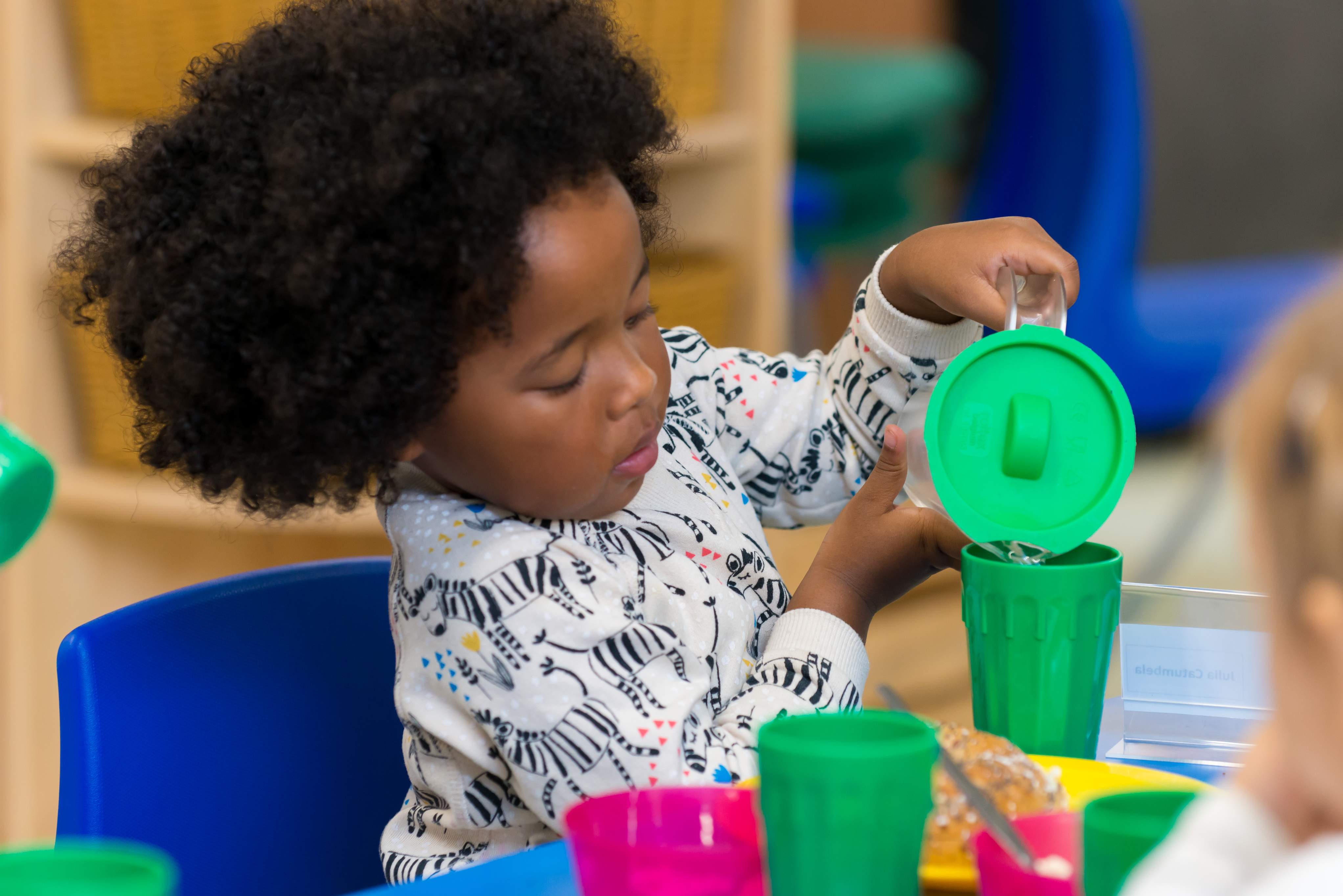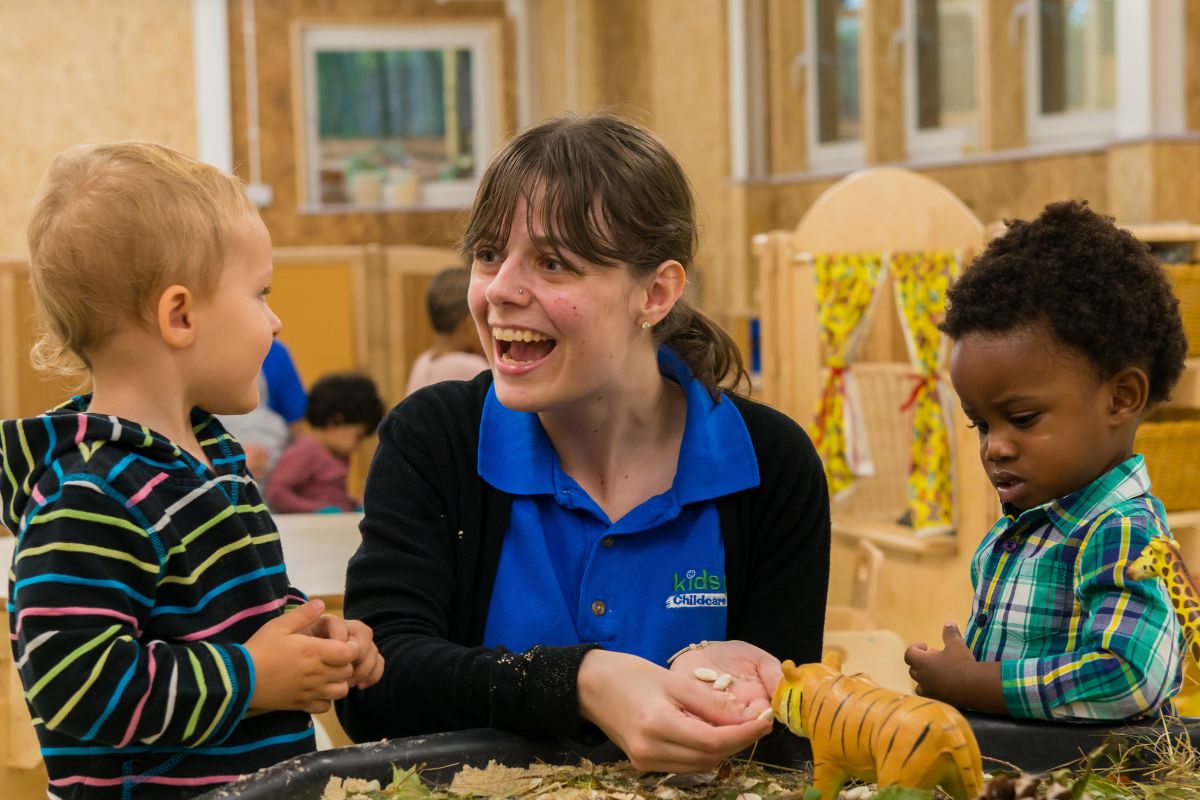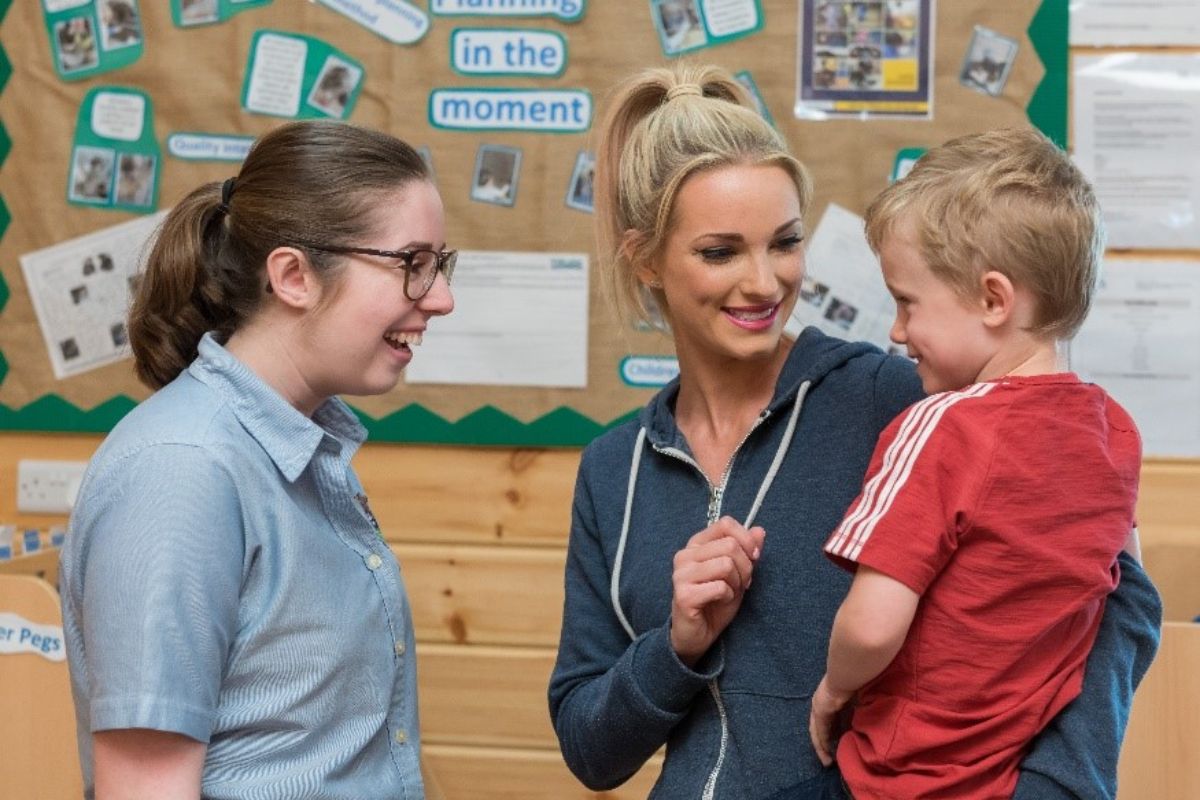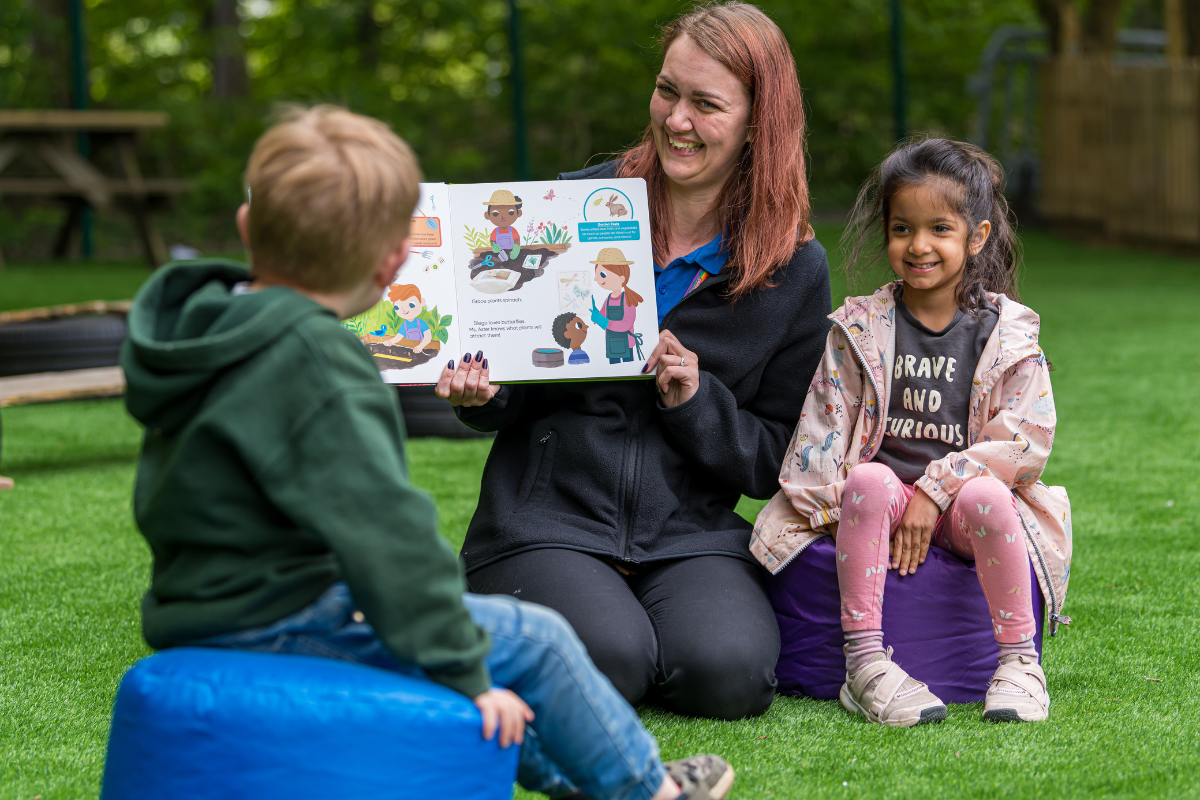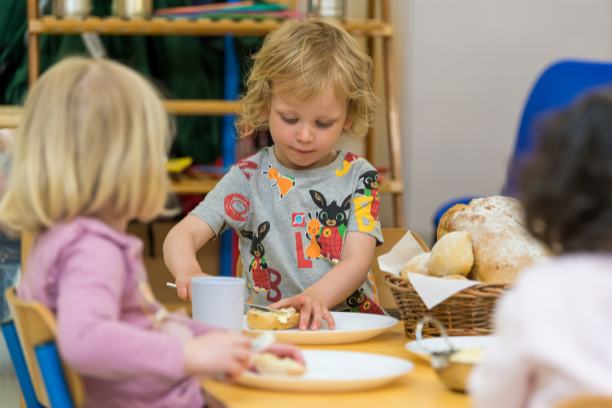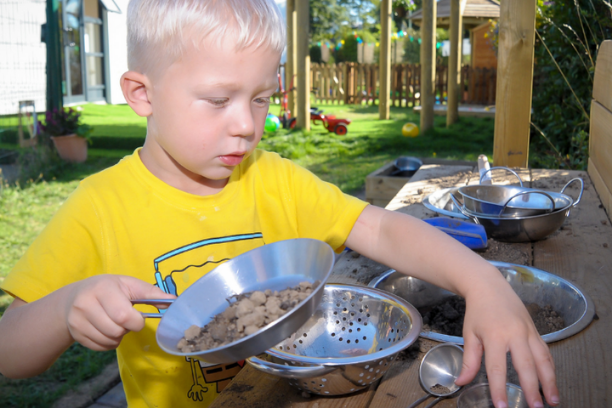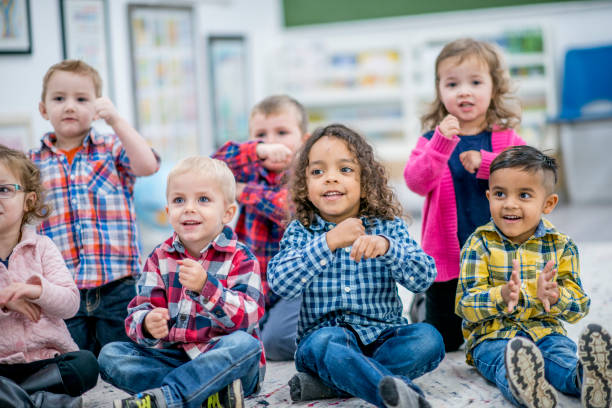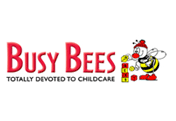Being independent has many benefits; the core of which is that it builds self-confidence and self-esteem.
Empowering children to be independent starts as early as Nursery and Pre-school. It also avoids over-reliance on adults, parents or even their more confident peers.
We always start to encourage children to start with something easy and small. We find their discovery of doing things for themselves, soon has a ripple effect. Children enjoy that their actions have an effect which encourages them to do more tasks for themself.
The key is to forget perfection, as most will struggle with the tasks at first. Our practitioners refrain from criticising and will give positive follow-up such as ‘you’re getting there’. This praise is important as it will keep confidence levels high and encourage children to try again.
Below are 6 ways that our qualified team will try to encourage independence in young children; all of which can be mirrored at home.
Self-Service at mealtimes
During mealtimes at nursery, we encourage children to self-serve. 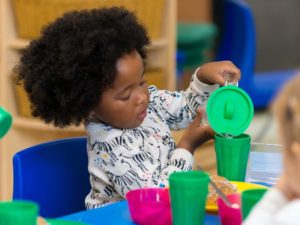 Practitioners will bring food and drink to children at their tables, which the children then help themselves to by pouring their own water and putting food on their plates.
Practitioners will bring food and drink to children at their tables, which the children then help themselves to by pouring their own water and putting food on their plates.
Not only does this help grow their independence but it also helps children with their fine motor skills.
Dressing themselves
We also encourage children to dress themselves. Across our Day Nurseries we promote free flow between indoor and outdoor learning environments. Therefore, throughout the day children will be required to put on their coats and swap between their outdoor wellies and indoor shoes.
Most children struggle to begin with, such as putting their shoes on the wrong feet. Our childcare practitioners will offer encouragement and support to avoid this being stressful and reinforce practice makes perfect.
Washing Hands
Washing hands has always been important but made even more so due to the COVID pandemic. We urge children to wash their own hands from a young age as it is an important independent habit they will practice for the rest of their lives. We make hand washing more appealing by encouraging children to sing ‘Happy Birthday’ twice, consequently teaching children about the importance of personal hygiene in a fun and constructive way.
Children respond positively to routine, so we encourage them to wash their hands before and after eating, after going to the toilet or touching the pets. Once this routine has been implemented, it helps children use their initiative and in turn strengthens their independence.
Arts & Crafts
Children enjoy lots of arts and crafts-based activities whilst at their Day Nursery. Not only are these activities fun but they also increase creativity in children.
Allowing the children to be creative strengthens decision making skills which are crucial 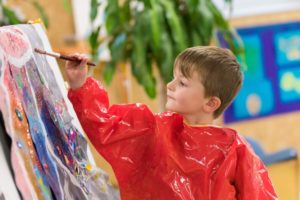 for independence. The children use critical thinking when choosing what colours, shapes and materials to use. Not only does this give them a sense of independence but also a sense of pride, allowing the children to express themselves creatively.
for independence. The children use critical thinking when choosing what colours, shapes and materials to use. Not only does this give them a sense of independence but also a sense of pride, allowing the children to express themselves creatively.
Arts and crafts also help improve fine and gross motor skills, for example simple tasks such as using a pair of scissors or holding a paintbrush can strengthen co-ordination, control, and movement. These independent skills are then transferable to other areas of their life, for example children who mix and pour paint will become more confident in pouring their own drinks, therefore strengthening their independence.
Tidying up
We always encourage children to tidy up after playing with toys or making a mess. Simple tasks such as putting away toys makes them feel like they’re making a contribution to the classroom, which ultimately gives children a sense of importance and helps build their independence.
Making tidying up a routine teaches children responsibility which is also a crucial skill for strengthening independence. We communicate that they are responsible for tidying up their own mess and we give them positive reinforcement when they complete this task.
Furthermore, tidying up helps children understand where things belong so they can learn to independently access what they need.
Taking care of a pet
At nursery, children have the chance to help look after a rabbit or guinea- pig. Teaching the children how to care and look after a pet gives them a sense of responsibility: stroking and feeding the pet will make the child feel helpful and valuable which consequently will improve their confidence.
Looking after a pet also brings increased sensitivity and awareness of the needs for others. Not only will these valuable skills help children build relationships with others, but the children will also directly see the importance of their actions and how they affect others, which will in turn help strengthen their independence.
Further Reading
https://www.wikihow.com/Encourage-Independence-and-Confidence-in-Children
https://www.todaysparent.com/kids/teaching-kids-to-be-more-independent/
https://www.teachearlyyears.com/learning-and-development/view/encouraging-independence
https://www.nurseryworld.co.uk/News/article/physical-development-in-arts-and-crafts-hands-on
https://www.bbc.co.uk/cbeebies/joinin/independent-skills-for-toddlers
https://princess-awesome.com/blogs/news/the-importance-of-art-and-craft-in-child-development
Back to Articles
